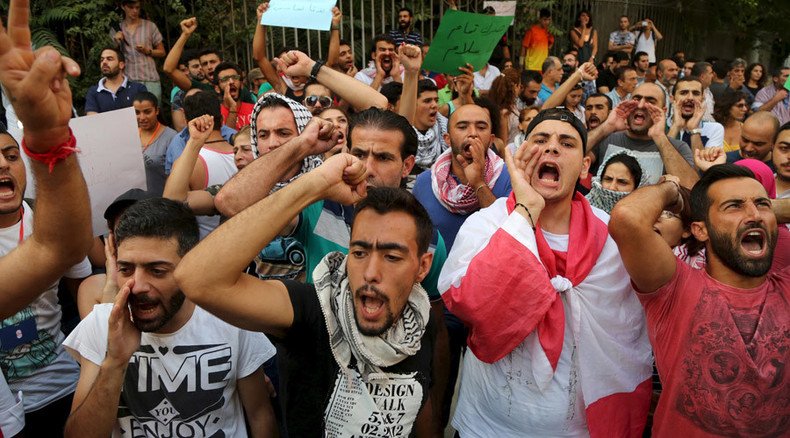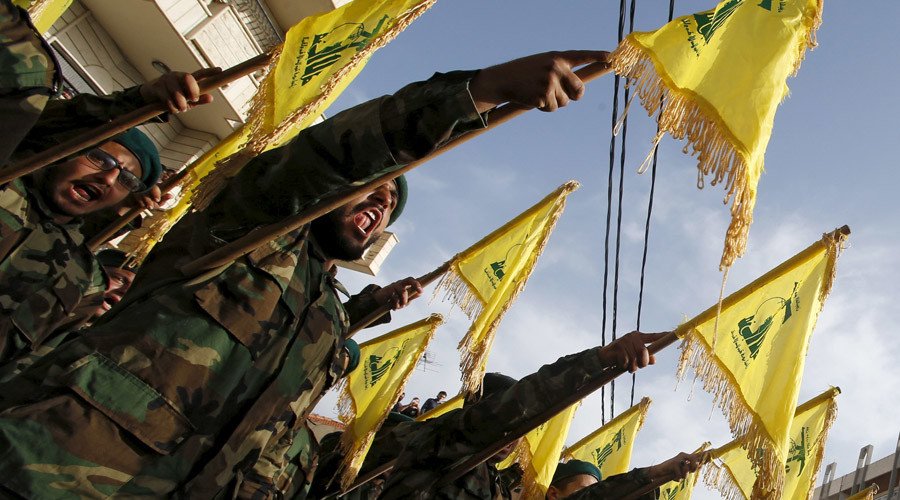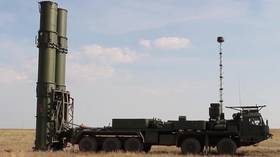Lebanon tensions: 'Armed groups could take advantage of power vacuum’

The Lebanese situation might escalate further as the government overreacts to protests. Armed groups openly side with protesters and may expolit the power vacuum, Max Abrahms, a political analyst from Boston University, told RT.
What started as demonstrations on Saturday over a breakdown in Beirut's rubbish collection has turned into violent protests with many injured and reportedly one dead.
“The protesters are escalating their demands. Initially they were calling for the removal of the rubbish, and now they are talking about the resignation of the entire government, the election of a new president. Furthermore, I know that there are additional protests which are being scheduled, especially for this Saturday,” suggests Abrahms.
“Government authorities are overreacting, being too aggressive with the protesters- that is a very dangerous game to play. In general when governments use repressive actions against protesters, especially once they reached a critical mass, it tends to backfire,” he told RT.
READ MORE: Violence between riot police, protesters in Lebanon’s capital
“On top of that…there are armed groups in the wings which could take advantage of this power vacuum. Hezbollah, for example, is openly siding with the protesters; there is a heavy presence of Islamic State in the eastern country of Syria. For all of these reasons, I see the conflict as, at least potentially, escalating,” the analyst adds.
Abrahms also says that “there is a real zeitgeist in the world for populations to overturn their governments when they are seen as being incompetent or corrupt.”
“Not only [the Lebanese government] lacks the capability to clear the rubbish, but there is so much corruption that the government doesn’t even seem interested in doing so. Lebanese people are looking around- they look South - to Egypt, then they look to Tunisia, and they are beginning to think to themselves: ‘You know what, we can do better,’” he said.
In the analyst’s view, there are no religious motives behind the people’s anger though.
“I don’t think that anger is religiously motivated. This is in some ways non-political... Many different kinds of people, of different ideological stripes are annoyed by the rubbish and the incompetence of the government,” Abrahms says.

“One of the main reasons why the government is so incompetent is precisely because it has this confessional system, where the Parliament, for example, has to elect the President, the President has to be Christian and the parliament is Muslim. There is basically a political impasse which is caused by the confessional system, but which is negatively affecting people of all sorts of different denominations,” Abrahms suggests.
“I think it’s one thing to be opposed to the government, to be in favor of protest. On that point I suspect that there is a broad-based support within Lebanon. It is quite a separate question to say: ‘What is our end goal? What do we want Lebanon to look like?’ On that point - there are many more divisions. Unfortunately, protesters are often more concerned with the first goal, than the second goal. So the post-protest environment could actually end up being even worse,” the analyst concluded.
According to Gerald Horne, author and historian, the Lebanese people are frustrated because of gridlock in the parliament that made it difficult to elect a president.
“The gridlock is in a sense a reflection of the so-called Taif Agreement that helped to settle the Lebanese civil war from 1975-1990 that divide a political power amongst three groups: the Christians, the Sunnis, and the Shia,” Horne told RT.
This, he said, has been complicated further by the fact “the Shia have attained a certain dominance through Hezbollah.”
“There is a very pernicious influence of so-called IS forces which are spreading like wildfire throughout the neighborhood. And then of course there is the similarly pernicious influence of the Israeli authorities who have yet to reconcile themselves to the fact that they were fought to a military standstill by Hezbollah.”
The statements, views and opinions expressed in this column are solely those of the author and do not necessarily represent those of RT.
LISTEN MORE:
The statements, views and opinions expressed in this column are solely those of the author and do not necessarily represent those of RT.












